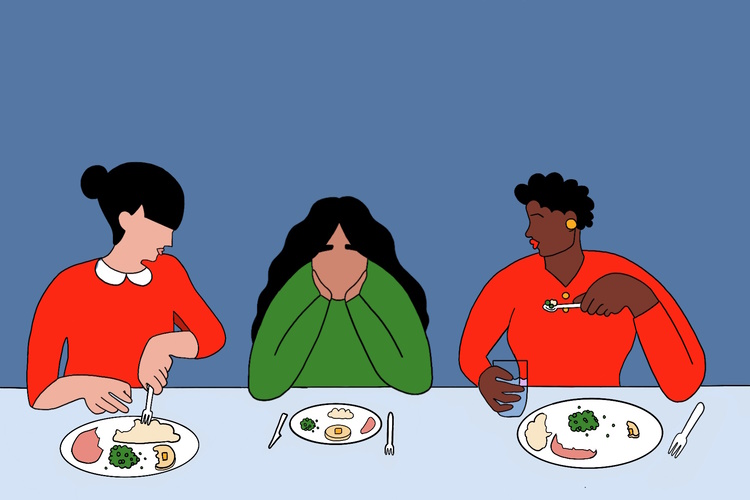Eating disorders
Eating disorders are serious mental health conditions that involve disturbed eating behaviors and a preoccupation with food and body weight. The three main types of eating disorders are anorexia nervosa, bulimia nervosa, and binge-eating disorder.
Anorexia nervosa is characterized by extreme weight loss, a distorted body image, and an intense fear of gaining weight. Individuals with anorexia may restrict their food intake to dangerously low levels and engage in excessive exercise or other behaviors to try to lose weight.
Bulimia nervosa is characterized by recurrent episodes of binge eating followed by purging behaviors, such as self-induced vomiting, laxative abuse, or excessive exercise. Individuals with bulimia may also have a distorted body image and an intense fear of gaining weight.
with binge-eating disorder may feel out of control during these episodes and may experience feelings of guilt or shame afterwards.
Eating disorders can have serious physical and psychological consequences, including malnutrition, electrolyte imbalances, gastrointestinal problems, cardiovascular issues, depression, anxiety, and substance abuse. It is important for individuals with eating disorders to seek professional help from qualified healthcare providers.

